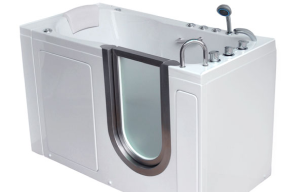Our healthcare demands tend to increase as we age, and for seniors, prescription medications are frequently a key element of maintaining their health and quality of life. The expense of these medications, on the other hand, can be a considerable burden for many seniors on fixed incomes. In this post, we will look at many ways for seniors to save money on prescription programs, ensuring they get the medications they need without breaking the bank.
Medicare Part D
Medicare Part D, a prescription drug coverage program accessible to Medicare beneficiaries, is one of the most significant instruments at a senior citizen's disposal. It helps reduce the financial pressure of acquiring drugs. However, because the alternatives might be overwhelming, it is critical to select the correct plan.
It's critical to examine Medicare Part D plans every year because your pharmaceutical needs and plan selections can vary. Plan comparison tools are available on websites such as Medicare.gov to assist you in locating the most cost-effective plan for your specific drugs.
Generic Medications
Choosing generic pharmaceuticals can drastically lower prescription drug costs. Generic medications are just as safe and effective as brand-name drugs, but often cost a fraction of the price. Many seniors can save hundreds of dollars every year by asking their doctors for generic versions of their prescribed medications.
Patient Assistance Programs
Several pharmaceutical companies provide patient assistance programs (PAPs) to assist low-income individuals, notably seniors, in obtaining critical prescriptions. These programs may offer free or highly discounted drugs to persons who meet certain criteria. Visit the manufacturer's website or speak with your healthcare physician to see if you are qualified for a PAP.
Discount Cards and Coupons
Another way to save money is to use prescription medicine discount cards or coupons. These are commonly available and can be purchased either online or at your local drugstore. Many organizations, such as AARP, provide their members with these cards. These cards, when used with your Medicare Part D plan or insurance, can result in significant savings.
Pill Splitting
In some circumstances, dividing larger-dosage medications in half can save money. Not all drugs are appropriate for this, so check with your doctor or pharmacist first. If it's both safe and cost-effective, your doctor may recommend a higher-dosage pill that you can divide, essentially decreasing your drug costs in half.
Mail-Order Pharmacies
For seniors who require long-term drugs, mail-order pharmacies are a good alternative. They frequently offer a 90-day supply of drugs for less than a local pharmacy. Check to see if your Medicare Part D or insurance plan includes mail-order pharmacy services and ask about any discounts or cost savings that may be available through this option.
State Pharmaceutical Assistance Programs (SPAPs)
Some states have their own pharmaceutical aid programs for the elderly. These programs are intended to assist those who have coverage gaps or have excessive out-of-pocket payments. To find out if your state has an SPAP, go to your state's health department's official website or contact a local social services organization.
Medicare Extra Help
You may be eligible for Medicare Extra Help, also known as the Low-Income Subsidy (LIS) program, if you are a senior with limited income and resources. This program supports with Medicare Part D prescription drug costs, premiums, deductibles, and copayments. Contact your local Social Security office or apply online through the official Social Security website to determine your eligibility and apply for Extra Help.
Senior Discounts
Many pharmacies, especially huge chains such as CVS and Walgreens, provide senior discounts. These programs can save you a lot of money on prescription and over-the-counter medications. Don't be afraid to ask your local pharmacist about senior discounts; they can make a significant difference in your medicine costs.
Health Savings Accounts (HSAs) and Flexible Spending Accounts (FSAs)
You may be qualified for a Health Savings Account (HSA) or Flexible Spending Account (FSA) if you have a high-deductible health insurance plan. These accounts enable you to save pre-tax cash for medical expenses such as prescription drugs. Using an HSA or FSA to purchase medications can help decrease the financial load.



